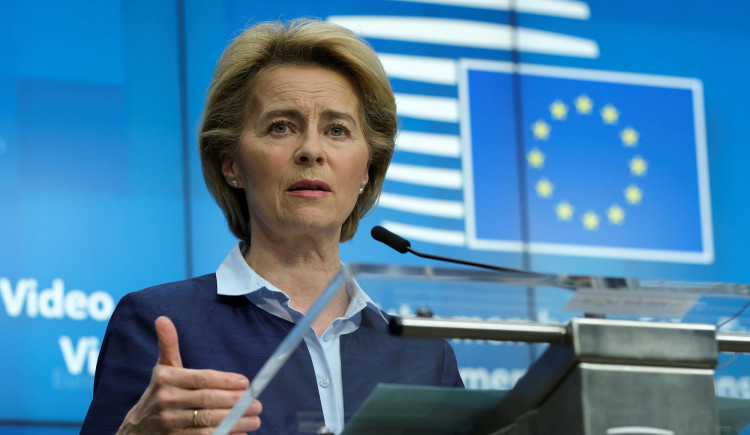Since the outbreak of the Israel-Palestine conflict on October 7, the European Union (EU) has been embroiled in internal debates over supporting Israel's right to self-defense versus advocating for the protection of civilians.
Just two days after Hamas launched attacks on Israel, Olivér Várhelyi, the EU Commissioner in charge of European Neighborhood and Enlargement, announced an immediate suspension of the EU's €6.9 billion aid to Palestine. However, hours after Várhelyi's statement, Janez Lenarčič, the EU's Crisis Management Commissioner, expressed the opposite sentiment, asserting that the EU would continue its aid to Palestine. The EU Commission later clarified that aid to Palestine had not been suspended but was under urgent review.
At the top echelons of the EU, officials have made contradictory statements regarding the Israel-Palestine conflict. Ursula von der Leyen, President of the European Commission, echoed the U.S. in staunchly supporting Israel, asserting the EU's solidarity with Israel during her visit. This stance sparked controversy within the EU. Josep Borrell, the EU's High Representative for Foreign Affairs and Security Policy, publicly noted that the EU's foreign policy is determined by its member states, not the Commission's president.
Borrell further stated that while Israel has a right to self-defense, some of its actions in Gaza have violated international law. This is the strongest criticism of Israel by an EU official to date. Charles Michel, President of the European Council and a known critic of von der Leyen, sided with Borrell, emphasizing Israel's obligation to adhere to international humanitarian law.
Last week, over 800 EU staff members and diplomats penned a letter to von der Leyen, criticizing her "unrestrained" support for Israel. The letter accused the EU Commission of double standards: opposing Russia's blockade of Ukraine but turning a blind eye to Israel's blockade of Gaza.
During the EU summit on October 26-27, leaders of the 27 EU nations clashed over the wording of the EU's statement on the Israel-Palestine conflict.
According to an interview with Reuters, EU officials revealed that diplomats debated whether to call for a "humanitarian pause" (singular) in Gaza, multiple "pauses" (plural), or a full "ceasefire." By Wednesday, the singular "humanitarian pause" seemed to be the favored term, suggesting a temporary halt rather than a long-term ceasefire. By Thursday afternoon, the plural version, indicating multiple pauses for humanitarian reasons, became the dominant discussion.
Among EU nations, Spain, Portugal, Ireland, and Luxembourg advocated for the term "ceasefire," urging both sides to end hostilities and restore peace in Gaza. Ireland and Spain are seen as the most pro-Palestinian members of the EU. However, Germany, bearing the weight of its WWII history, along with Austria and the Czech Republic, which were occupied by Nazi Germany during WWII, supported Israel's right to self-defense. They believed that calling for a "ceasefire" would weaken Israel's defensive capabilities and provide Hamas with an opportunity to counterattack.
Ultimately, countries like Spain made concessions, agreeing to use "pause" instead of "ceasefire" in the declaration. In exchange, the EU agreed to Spain's request to convene an international peace conference on the Israel-Palestine issue as soon as possible.
The official statement from Thursday's meeting, published on the EU's website, reiterated the EU's condemnation of Hamas's attacks on Israel and supported Israel's right to self-defense within the bounds of international and humanitarian law.
Meanwhile, the EU Commission expressed "deep concern" over the deteriorating humanitarian situation in Gaza, urging relevant parties to take all necessary measures to ensure that humanitarian aid enters Gaza "swiftly, continuously, safely, and unimpeded." This includes establishing humanitarian corridors and "pauses for humanitarian needs." The term used for "pauses" was in plural.
However, the declaration, formulated after several rounds of disputes among EU nations, did not impact the actual situation in Gaza.
As of October 26, the death toll in Gaza had risen to over 7,000. Apart from intense airstrikes, Israel dispatched ground troops and tanks to Gaza for a second minor ground assault, preparing for a larger-scale invasion. After completing their mission, Israeli soldiers withdrew from Gaza.
A commentary in the EU edition of Political News Network pointed out that although the EU is one of Palestine's largest donors, due to internal divisions and habitual reliance on the U.S., the EU's influence in international affairs has noticeably declined.
The article argued that in this round of the Israel-Palestine conflict, the EU has been reduced to a "non-governmental organization": while its humanitarian contributions are welcomed, its influence stops there.





